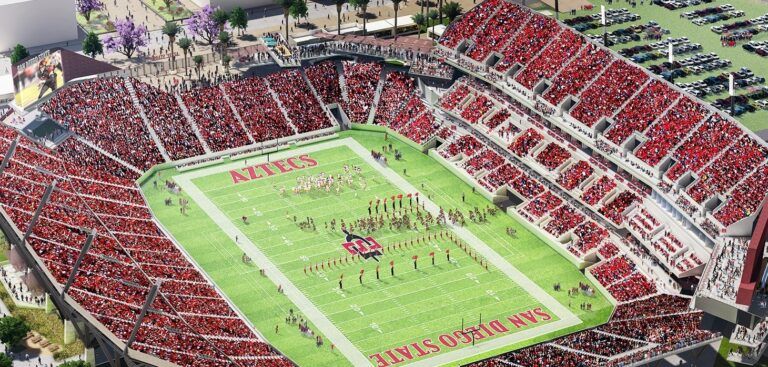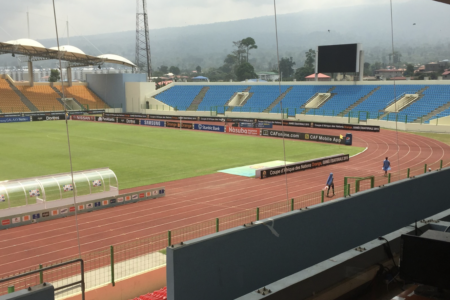San Diego State University’s (SDSU) Aztec Stadium will feature the latest 5G connectivity as part of its construction, which is expected to be completed by 2022.
The $3.5bn SDSU Mission Valley campus expansion project involves the build of a new 35,000 seater stadium for Aztec football and other sports and entertainment events, with technology playing an important part of the new venue.
As such, it will feature the high-bandwidth 5G connectivity to keep fans connected. SDSU has selected DAS and Wi-Fi provider Boingo Wireless to design, build, operate and maintain a 5G-ready, neutral host cellular DAS network for the university’s new multi-use Aztec Stadium.
Boingo will deploy service throughout Aztec Stadium, including bowl seating, the playing field, concourses, entry gates, press box, locker rooms, media center, administrative offices and the surrounding parking lots.
“The new Aztec Stadium will be a world-class sports and entertainment venue with world-class connectivity built for the 5G era,” said Boingo CEO Mike Finley. “We’re proud to enable the stadium’s tech-forward initiatives to keep guests connected—whether live-streaming kickoff, engaging on the Aztecs mobile app or using a mobile ticket.”
Boingo’s neutral host wireless network will be designed for multi-carrier 5G and LTE coverage, including millimeter wave (mmWave), a high frequency, high bandwidth 5G technology that can quickly transmit large amounts of data, such as augmented reality, virtual reality and 4K streaming. The network will be high-density to deliver seamless connectivity to guests, staff and athletes across the 35,000-capacity space.
“Aztec Stadium will define the next generation fan experience, where smart connectivity solutions enhance every venue touchpoint,” said SDSU Director of Intercollegiate Athletics John David Wicker. “Boingo is the right wireless partner to help us realize our vision of delivering this fan-first experience and we’re excited to have them on board as our neutral host 5G partner.”
Aztec Stadium adds to Boingo’s growing DAS portfolio of NCAA, NFL, NBA and MLS stadiums in the U.S., and expands its network footprint to more than 30 venues in California across major airports, transportation hubs, sports and entertainment venues, multifamily communities and military bases.





